by ASJAD NAZIR
THE HEAD CHEF AND AUTHOR ON HER FLAVOUR-FILLED JOURNEY AND HOW TO CONQUER COOKERY CHALLENGES
BEING attached to the toy kitchen at nursery as a three-year-old was the beginning of a lifelong journey connected to cooking for Nitisha Patel.
Growing up, she was surrounded by good food, home recipes and relations who loved to cook, including a grandmother who taught her how to make traditional Gujarati food.
That flavour-filled childhood led to her breaking through into a male-dominated industry and becoming a head chef. She later developed dishes for leading retailers and released her acclaimed cookbook My Modern Indian Kitchen.
With big plans for the future, the master chef plans to continue her lifelong passion of cooking and good food. Eastern Eye caught up with Nitisha to talk about food inspirations, cooking tips, her book, the importance of ingredients and more...
What made you want to turn a love for cooking into a career?
I strongly believe that if can turn your passion into a career, you’re winning. For me, food is my whole life and I can’t really imagine working in another industry. My journey just kept taking me to new heights – from A-level to a degree in culinary arts management, to a career in product development, to creating my own food consultancy business.
How do you look back on your journey working with food?
With pride. Sometimes when I have a bad day or things don’t go to plan, I remind myself of how far I’ve come. I’m from a small city that had a lot of bad press, especially for the food and hospitality scene.
I grew up at a time when there was no social media and food wasn’t as trendy as it is now. But my love of food and cooking kept me inspired and hungry to go further. I keep asking myself: ‘What’s next?’ and always aim to grow. And if I can go from working in fast food restaurants to having my own recipe book available globally, there is a lot more I can accomplish.
What led you towards writing a book?
I had the idea of writing My Modern Indian Kitchen because I wanted to do something for my family and myself. For years, I had been working for corporate companies developing food. My ideas were innovative, successful and well-received by major clients. It felt great, but made me sad that I wasn’t getting the recognition for my recipes or concepts.
While working full-time, I was also writing a book based on the food I love to eat. When it was published, I was filled with emotions. The book was just an idea I had which I never dreamed would come true, and within two years it had been published and distributed globally. I’m not a mother, but to me holding the first copy was like holding a first-born child.
Tell us about the book.
My Modern Indian Kitchen is a concept I thought of when I was in a low place. The idea of it gave me hope and a reason to keep fighting. The book in a way represents my culture, heritage, childhood and passion. It is a product of my love of food, as well as working professionally as a chef in a number of food industries such as hospitality and product development.
Where do you draw inspirations from when creating a dish?
There are a variety of inspirations and each recipe tells its own story. In the book I have a recipe that pays homage to my nan’s amazing lime pickle. There is a Chai pannacotta because a pannacotta was the first dessert I learned to make at catering college. I love making masala roast dinners because I’m a British-born girl who loves roast dinners, but also the spice too.
My parents are both part of the East African Gujarati generation, who despite being from India also lived in Africa too, so some of my recipes have that African twist too. Now living in London, I’m part of a community where I come face-to-face with food trends on a daily basis. When creating recipes I also tap into food trends. I also love working with the new, hottest ingredients.
Are you under constant pressure to innovate?
Now that more people are becoming aware of me and my style of food, I would say yes. There is a huge number of talented British Asian chefs and food bloggers making their mark in the industry, so it’s always important to innovate and stand out.
What advice would you give those who want to learn cooking, but think it’s too complicated?
I don’t think cooking has to be complicated. I have never really dabbled in molecular gastronomy or other weird and wacky methods of cooking. For me, I get the best tasting food when I have kept the recipes simple, but have treated the ingredients with the love and respect they deserve. Cook the ingredients well and then they will speak for themselves.
What common mistakes do people tend to make when cooking?
I find that a lot of people make the mistake of not having a plan. They rush into cooking something without actually thinking about the final dish and what they want it to look and taste like.
So how important is it to learn about ingredients?
Ingredients make a dish so I feel it’s really important. As humans, we’re not born with knowledge of everything – we learn as we grow and it’s the same being a chef. There is so much to learn. I love going to food markets and looking at interesting new ingredients.
What is the secret of finding the right ones?
Knowing where to go. Farmers markets are great because they celebrate local produce. I much prefer buying ingredients from market stalls as opposed to supermarkets. But I also think we’re lucky to have much more world cuisine in supermarkets than even five years ago. It’s amazing walking through aisles and finding authentic ethnic ingredients.
Which cuisine do you find most exciting?
I love southeast Asian cuisine. I practically lived off Thai food for a good few years, but now I have a new-found love of Vietnamese cuisine. I think it’s so fresh and flavoursome.
Who is the best cook you know?
That’s a tough question, and definitely a tie between my grandmother and mother. I’ve eaten in Michelin-starred restaurants and worked with chefs all over the world, but there is something magical about the way they both cook. They make the simplest of dishes taste amazing.
How much is cooking connected to good health?
A huge amount. As the saying goes: ‘You are what you eat’, and what we put in our bodies has a big impact on both our internal and external health. Having an Indian heritage is great because I tie in a lot of my cooking and style of food with Ayurveda, which is the ancient Indian science of life.
Who do you love cooking for most?
Definitely family. It makes me so pleased when we have events and my food is well-received. There’s something rewarding about pleasing elders.
You have a wealth of knowledge, but is there something cooking related you want to learn?
It sounds crazy, but I would love to spend time in the jungles of India with groups of tribes. Here in the west, we rely on pre-produced food, spices and appliances such as fridges to keep our food chilled, but it would be really cool to go back to basics and cook food sourced straight from mother nature.
I think there’s something really interesting about cooking a meal where the ingredients have been foraged and hunted just a few minutes before.
Have you had any bad moments in the kitchen?
My journey has always had its challenges because this industry is so male-dominated. I’ve always been the only girl in the kitchen and have had to step up, become thick-skinned and prove my worth.
What advice would you give those wanting to pursue a career in cooking?
Nothing worth having comes easy. Despite how it looks on TV and social media, the food industry is not always glamorous. It’s hard work and draining, both physically and mentally.
But you can’t give up if you want to go far. My advice is to keep the end goal in sight. Remember where you want to be and why you are grafting.
What can we expect from you next?
At the minute I’m working on a few projects. I want to write my second book soon, which will be based on healthy Indian superfood, and tap into a bit of Ayurveda. I’m also developing a few products of my own which I hope to launch nationwide.
Finally, why do you love cooking?
I think cooking is a universal language. Everyone loves to eat and everyone loves food. Food brings people together, and if I can champion modern Indian cuisine and make people happy at the same time, I’m clearly doing something right.
- Visit www.nitishapatel.com for more





 Lunchbox is a powerful one-woman show that tackles themes of identity, race, bullying and belongingInstagram/ lubnakerr
Lunchbox is a powerful one-woman show that tackles themes of identity, race, bullying and belongingInstagram/ lubnakerr She says, ''do not assume you know what is going on in people’s lives behind closed doors''Instagram/ lubnakerr
She says, ''do not assume you know what is going on in people’s lives behind closed doors''Instagram/ lubnakerr








 He says "immigrants are the lifeblood of this country"Instagram/ itsmetawseef
He says "immigrants are the lifeblood of this country"Instagram/ itsmetawseef This book is, in a way, a love letter to how they raised meInstagram/ itsmetawseef
This book is, in a way, a love letter to how they raised meInstagram/ itsmetawseef
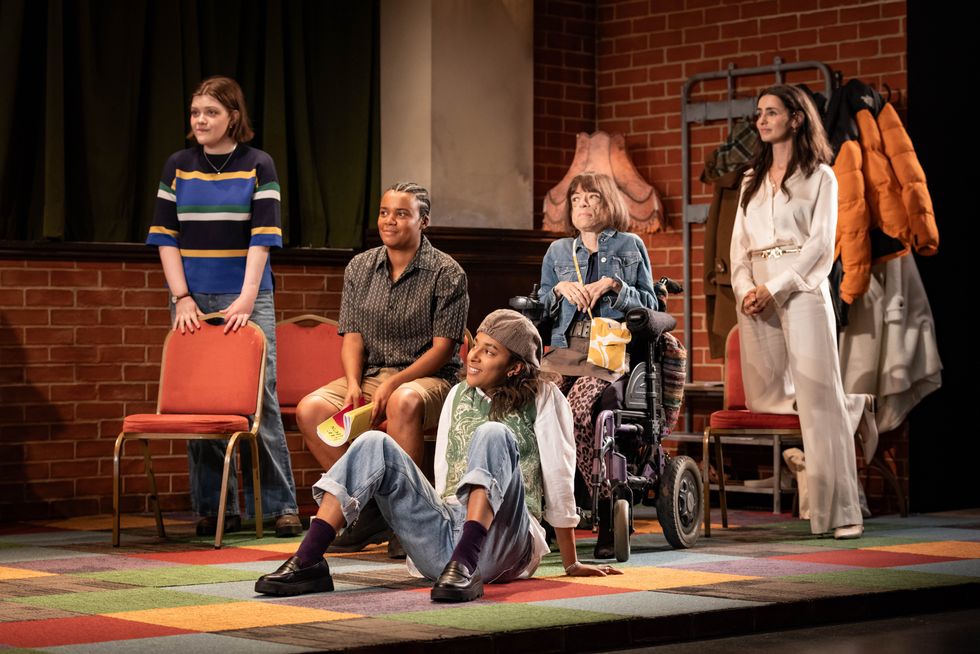 The crew of The Ministry of Lesbian Affairs
The crew of The Ministry of Lesbian Affairs
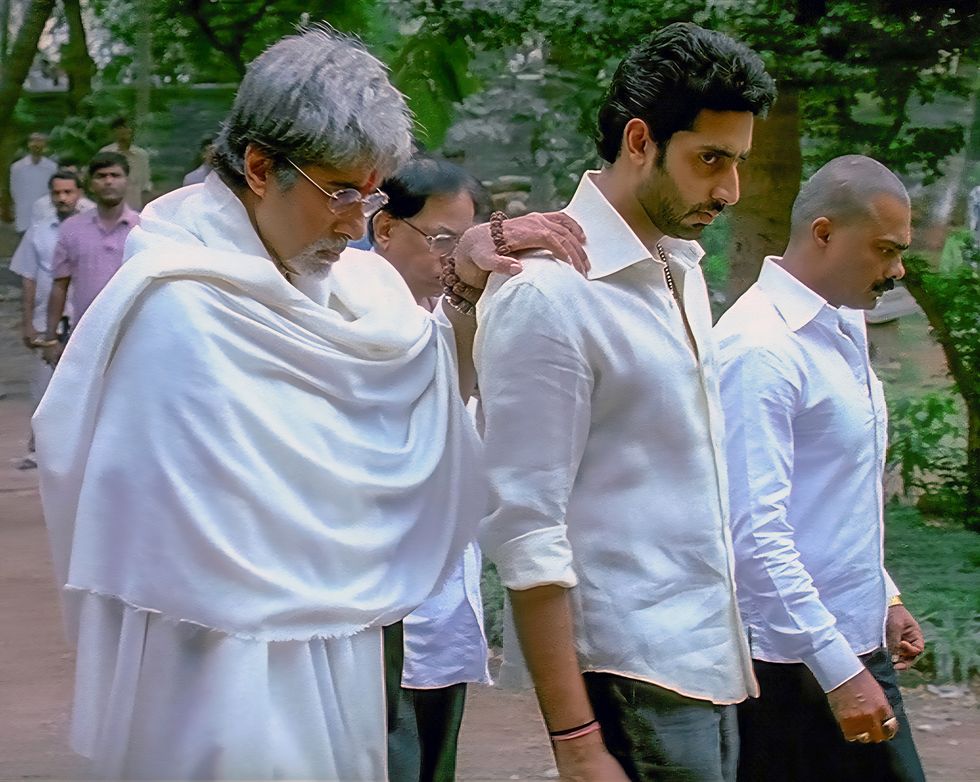 A still from Sarkar, inspired by 'The Godfather' and rooted in Indian politicsIndia Glitz
A still from Sarkar, inspired by 'The Godfather' and rooted in Indian politicsIndia Glitz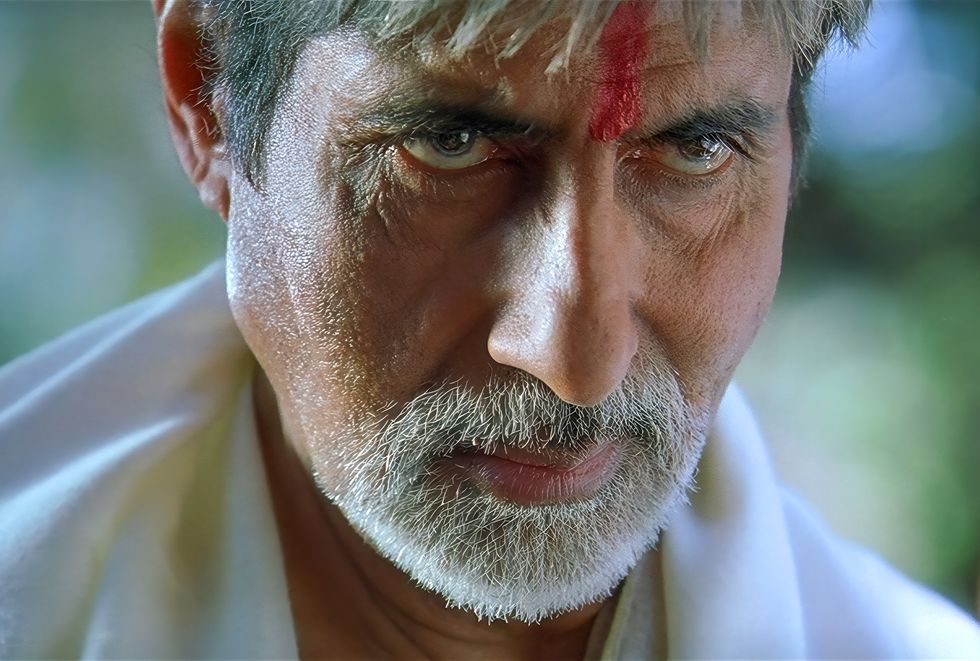 Sarkar became a landmark gangster film in Indian cinemaIndia Glitz
Sarkar became a landmark gangster film in Indian cinemaIndia Glitz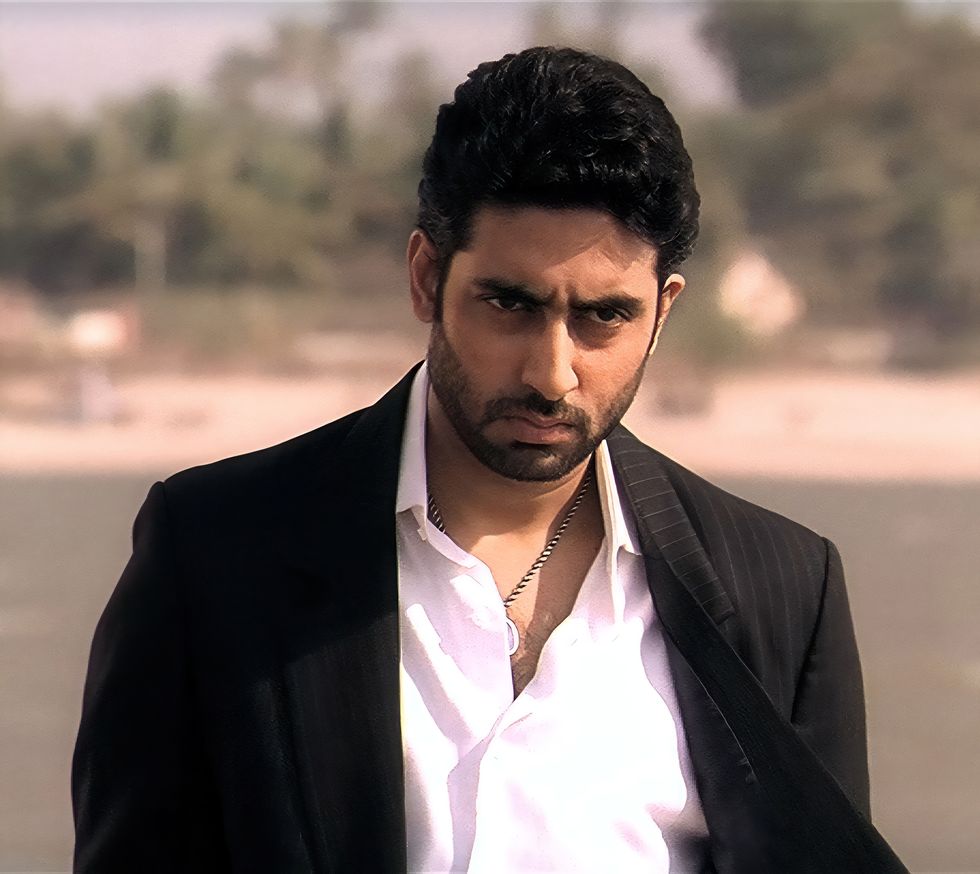 The film introduced a uniquely Indian take on the mafia genreRotten Tomatoes
The film introduced a uniquely Indian take on the mafia genreRotten Tomatoes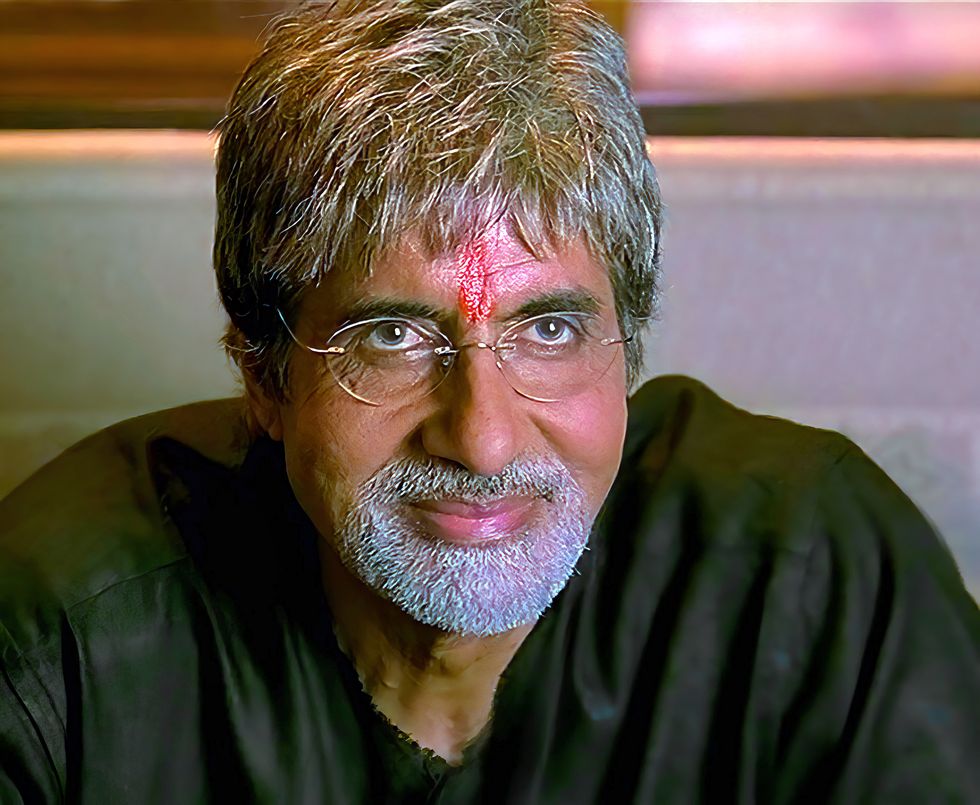 Set in Mumbai, Sarkar portrayed the dark world of parallel justiceRotten Tomatoes
Set in Mumbai, Sarkar portrayed the dark world of parallel justiceRotten Tomatoes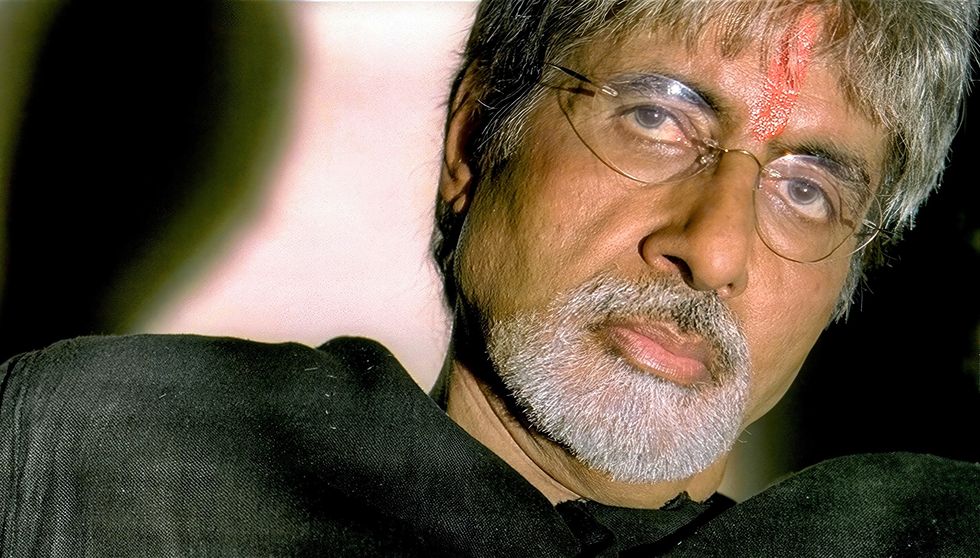 Ram Gopal Varma’s Sarkar marked 20 years of influence and acclaimIMDb
Ram Gopal Varma’s Sarkar marked 20 years of influence and acclaimIMDb
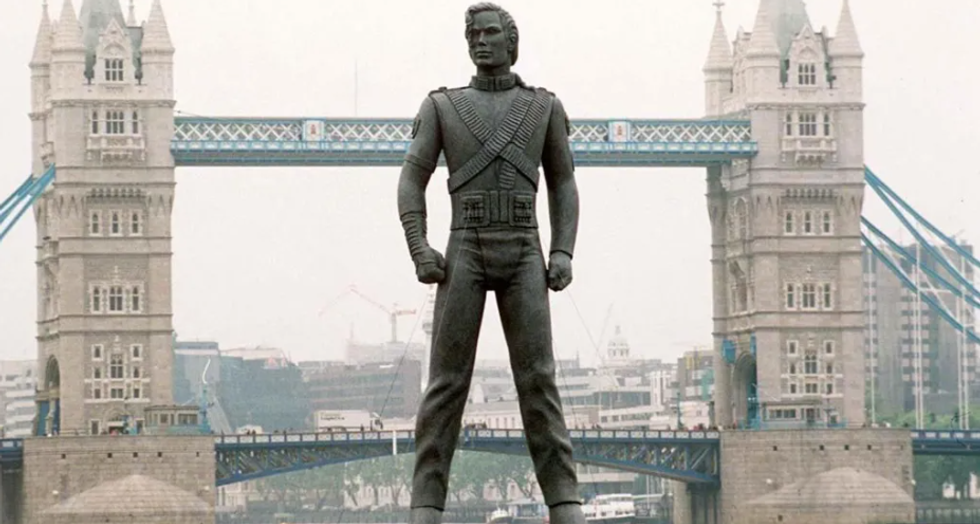 The statues were the product of a transatlantic effortGetty Iamges
The statues were the product of a transatlantic effortGetty Iamges